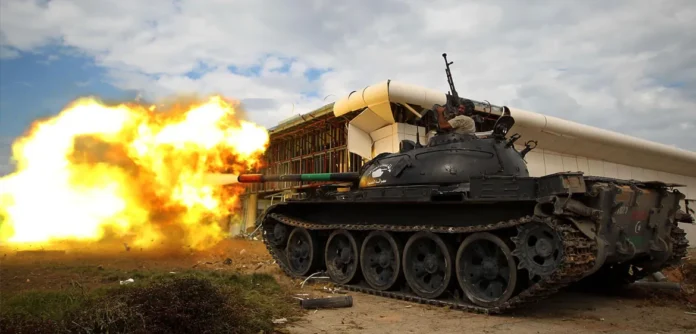Author: Ferhat Polat
Affiliation: TRT World Research Centre
Organization/Publisher: TRT World Research Centre
Date/Place: June 28, 2021/Istanbul, Turkey
Type of Literature: Security Study
Number of Pages: 8
Link: https://researchcentre.trtworld.com/featured/mercenaries-in-libya-and-the-threat-to-regional-peace/
Keywords: Mercenaries, External Actors, Berlin Conference
Brief:
Libya’s UN-recognized Government of National Unity (GNU) faces several challenges to the goal of stabilizing the country, the greatest of which is the lack of security exacerbated by the presence of mercenaries. Fragile political coalitions and external intervention make the goal of strengthening state institutions unrealistic, especially with open competition over Libya’s oil reserves. Militia leader Khalifa Haftar and his benefactors depend heavily on mercenaries to achieve their set agenda, the UAE playing the central role of bringing Sudanese and Chadean fighters required to expand Haftar’s control circle. The presence of foreign fighters is a destabilizing factor since violence and war are spilling over into the Sahel region; the Berlin Conference has insisted on the withdrawal of foreign mercenaries for a more stable political scene. The hope of decreasing the number of mercenaries remains unrealistic due to mistrust caused by atrocities committed by all sides, and this security challenge strips away free and safe voting from the Libyan people in the coming December elections. It is crucial that international actors coordinate their efforts of stabilizing Libya and rebuilding strong state institutions, but the conflict will continue as external players refuse to commit to peace.
By: Omar Fili, CIGA Research Intern




